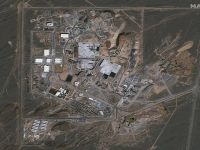ALBAWABA - In a significant development, Gadi Eisenkot, a member of Israel's war cabinet, has accused Prime Minister Binyamin Netanyahu of not being truthful about the absolute defeat of Hamas in Gaza. The rift within the cabinet comes as tensions escalate, with Eisenkot asserting that there is no trust in the current leadership, calling for new elections.
Eisenkot pointedly stated that Netanyahu bears "clear and definite responsibility" for failing to protect the country since October 7, emphasizing the need for a change in leadership. The internal tension within the cabinet has intensified, coinciding with reports of little communication between Prime Minister Netanyahu and Defense Minister Yoav Gallant.
Following Netanyahu's remarks rejecting future pressure for a Palestinian state from the United States and insisting on continuing the attack "until complete victory," White House National Security Adviser John Kirby acknowledged differences in how the events are perceived by the U.S. and Israel.
The Israeli Foreign Ministry spokesperson stated that security issues in Israel cannot be resolved without a Palestinian state. The White House disclosed that President Joe Biden discussed the two-state solution with Netanyahu during a phone call on Friday.
In a subsequent press conference in Washington, Biden rejected the notion that a two-state solution is impossible during Netanyahu's tenure, emphasizing various forms of the solution. However, Netanyahu, a long-time opponent of a Palestinian state, proudly boasted of preventing it last month.
In Israel, where Prime Minister Netanyahu's popularity is waning, he is turning back to the far-right to garner support. Recent polls indicate that only 15% of Israelis want him to remain in office after the war.
While the majority of Israelis continue to support the military operation against Hamas, many now prioritize the return of the remaining 130 hostages over the seemingly unattainable goal of eradicating Hamas.
However, Netanyahu seems to tie his political future to staunch opposition to Palestine. In the aftermath of the worst attacks in Israel's history occurring during his tenure, he may no longer rely on the "security" narrative and is expected to embrace the rhetoric of "No Independent Palestine." This position aligns with the trauma experienced by a population that cannot fathom a Palestinian state next door.










